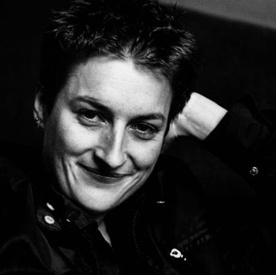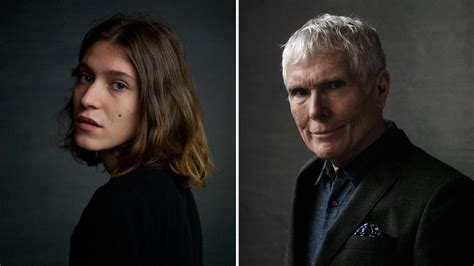A Quote by Emile Zola
She was cold by nature, self-love predominating over passion; rather than being virtuous, she preferred to have her pleasures all to herself.
Related Quotes
There was a warmth of fury in his last phrases. He meant she loved him more than he her. Perhaps he could not love her. Perhaps she had not in herself that which he wanted. It was the deepest motive of her soul, this self-mistrust. It was so deep she dared neither realise nor acknowledge. Perhaps she was deficient. Like an infinitely subtle shame, it kept her always back. If it were so, she would do without him. She would never let herself want him. She would merely see.
Yet losing him seemed unbearable. He was the one she loved, the one she would always love, and as he leaned in to kiss her, she gave herself over to him. While he held her close, she ran her hands over his shoulders and back, feeling the strength in his arms. She knew he’d wanted more in their relationship than she’d been willing to offer, but here and now, she suddenly knew she had no other choice. There was only this moment, and it was theirs.
Yet there were times when he did love her with all the kindness she demanded, and how was she to know what were those times? Alone she raged against his cheerfulness and put herself at the mercy of her own love and longed to be free of it because it made her less than he and dependent on him. But how could she be free of chains she had put upon herself? Her soul was all tempest. The dreams she had once had of her life were dead. She was in prison in the house. And yet who was her jailer except herself?
She suffers as a miser. She must be miserly with her pleasures, as well. I wonder if sometimes she doesn't wish she were free of this monotonous sorrow, of these mutterings which start as soon as she stops singing, if she doesn't wish to suffer once and for all, to drown herself in despair. In any case, it would be impossible for her: she is bound.
Those were the people who made her something, and without them she was different. She'd held on to them and to that old self tenaciously, though. She clung to it, celebrated it, worshipped it even, instead of constructing a new grown-up life for herself. For years she'd been eating the cold crumbs left over from a great feast, living on them as though they could last her forever.
I was pretty impressed during the opening of one of my shows, when the five-year-old daughter of a well-known movie actress took a running jump at one of my paintings, like she was diving into a swimming pool. I preferred to treat her impulse as a compliment rather than insult. Sadly she hurt herself more than the painting.
She emptied herself of Fabio and of herself, of all the useless efforts she had made to get where she was and find nothing there. With detached curiosity she observed the rebirth of her weaknesses, her obsessions. This time she would let them decide, since she hadn't been able to do anything anyway. Against certain parts of yourself you remain powerless, she said to herself, as she regressed pleasurably to the time when she was a girl.
It seemed to Alabama that, reaching her goal, she would drive the devils that had driven her - that, in proving herself, she would achieve that peace which she imagined went only in surety of one’s self - that she would be able, through the medium of the dance, to command her emotions, to summon love or pity or happiness at will, having provided a channel through which they might flow. She drove herself mercilessly, and the summer dragged on.
It's about waking up. A child wakes up over and over again, and notices that she's living. She dreams along, loving the exuberant life of the senses, in love with beauty and power, oblivious to herself -- and then suddenly, bingo, she wakes up and feels herself alive. She notices her own awareness. And she notices that she is set down here, mysteriously, in a going world.
My mom is just authentically herself all the time. She loves herself. She loves her sense of humor. She brings people in when she talks. She brings people in when she laughs. Watching her, I think that that's when I first learned and was encouraged to be myself and to sort of love and live in that way.
But what I kept wondering about is this: that first second when she felt her skirt burning, what did she think? Before she knew it was candles, did she think she'd done it herself? With the amazing turns of her hips, and the warmth of the music inside her, did she believe, for even one glorious second, that her passion had arrived?






































